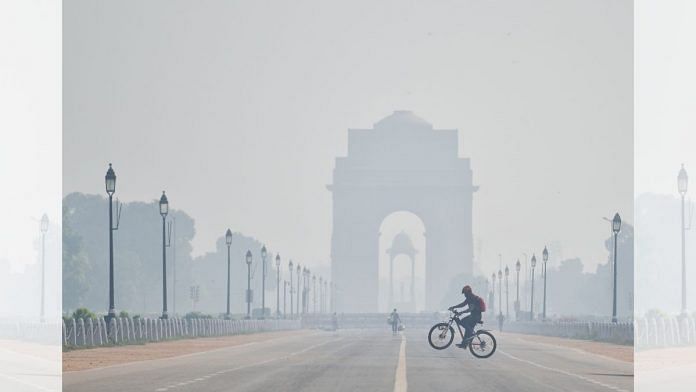New Delhi: Criminal liability for certain offences under environmental protection laws could be replaced with financial penalties, the central government has proposed in consultation papers released last week.
These proposals seek to decriminalise violations of certain provisions in the Environment (Protection) Act, 1986, the Water (Prevention and Control of Pollution) Act, 1974, and the Air (Prevention and Control of Pollution) Act, 1981.
Experts say criminal liability hasn’t been effective in curbing violations under these three laws, but also that more clarity is needed on the final shape the proposed changes will take.
The proposed changes include creating funds from the penalties collected from violators in order to mitigate environmental damage. The fines could go up to Rs 5 crore.
The changes are being proposed “based on inputs received from various stakeholders,” and “in order to weed out fear of imprisonment for simple violations,” the Union Ministry of Environment, Forest and Climate Change said in a note released Friday.
According to the National Crime Records Bureau (NCRB), 992 cases were registered under the Environment (Protection) Act and 588 cases under the Air and Water Acts in 2020.
Speaking to ThePrint, Ritwick Dutta, lawyer and founder of the Legal Initiative for Forest and Environment, a Delhi-based advocacy group, said, “Criminal prosecution under these laws is extremely difficult, because it involves complaining to the judicial magistrate, who will set up a trial, after which a judgment will be announced. Practically, those suffering because of pollution want its source to be removed, for the resource to be restored, and compensation for whatever damage has occurred. Not necessarily to try and arrest the polluter.”
“These Acts need reform, and moving away from criminal liability and introducing civil remedies is a step in the right direction.”
The ministry will be accepting public feedback on the consultation papers till 21 July.
Also Read: ‘Unscientific,’ says govt as Yale-Columbia environment index ranks India last among 180 nations
What the proposed changes are
The Environment (Protection) Act, 1986 (EPA) lays down the primary framework for studying, planning and implementing long-term environmental safety requirements. It provides for a system to respond to environmental threats.
Under the existing framework, the EPA provides for punishments that may extend to five years, in addition to a fine of up to Rs 1 lakh, or both. According to the proposed changes, any person not complying with the Act will be liable to pay a minimum of Rs 5 lakh, which can go up to Rs 5 crore.
The government proposes appointing an adjudicating officer who will impose these penalties, the proceeds of which will be forwarded to an ‘Environmental Protection Fund’ set up for the purpose.
While any non-compliance with the EPA would attract financial penalties, “serious violations which lead to grievous injury or loss of life,” will result in offenders being criminally charged under the Indian Penal Code, the consultation paper says.
Similarly, the government proposes creating air and water pollution remediation funds out of the penalties imposed for violations of the Air and Water Acts, respectively.
Currently, violations under these laws can lead to a jail term of up to six years. The proposed changes to the Air Act include empowering the central government to exempt certain categories of industries, which are “green or non-polluting,” from having to obrain prior consent from the State Board to set up their units. However, if this exemption is not sought, violators will be criminally liable under Section 21 of the Act, the consultation paper says.
Since water is on the Constitution’s concurrent list — areas over which states and the Union government share jurisdiction — the consultation paper states that the proposed amendments will only come into force after a minimum of two states pass a resolution, ‘empowering’ Parliament to consider the same.
Also Read: ‘No public consultation’, razed forests: Manipur landslide raises questions on rail project
Will penalties work?
Dutta is optimistic that the shift away from criminal liability will make governing violations under these laws easier, but not all legal experts are convinced.
Krithika Dinesh, an environmental lawyer and researcher, said, “I agree that criminal liability hasn’t worked, but will imposing penalties? The proposed changes run the risk of reinforcing the assumption that these losses — whether environmental or health-related — can be compensated for with money.”
Dinesh added that the proposed amendments don’t adequately outline how the funds will be used, or the reasoning behind the revised penalty figures. “With the funds, there should be an attempt to understand and get to the cause of the environmental damage and remedy that.”
Akshat Jain is a student of the National Law University, Delhi, and an intern with ThePrint
(Edited by Tony Rai)
Also Read: Gen Z is at the forefront of sustainable fashion movement. Brands are adopting changes too



